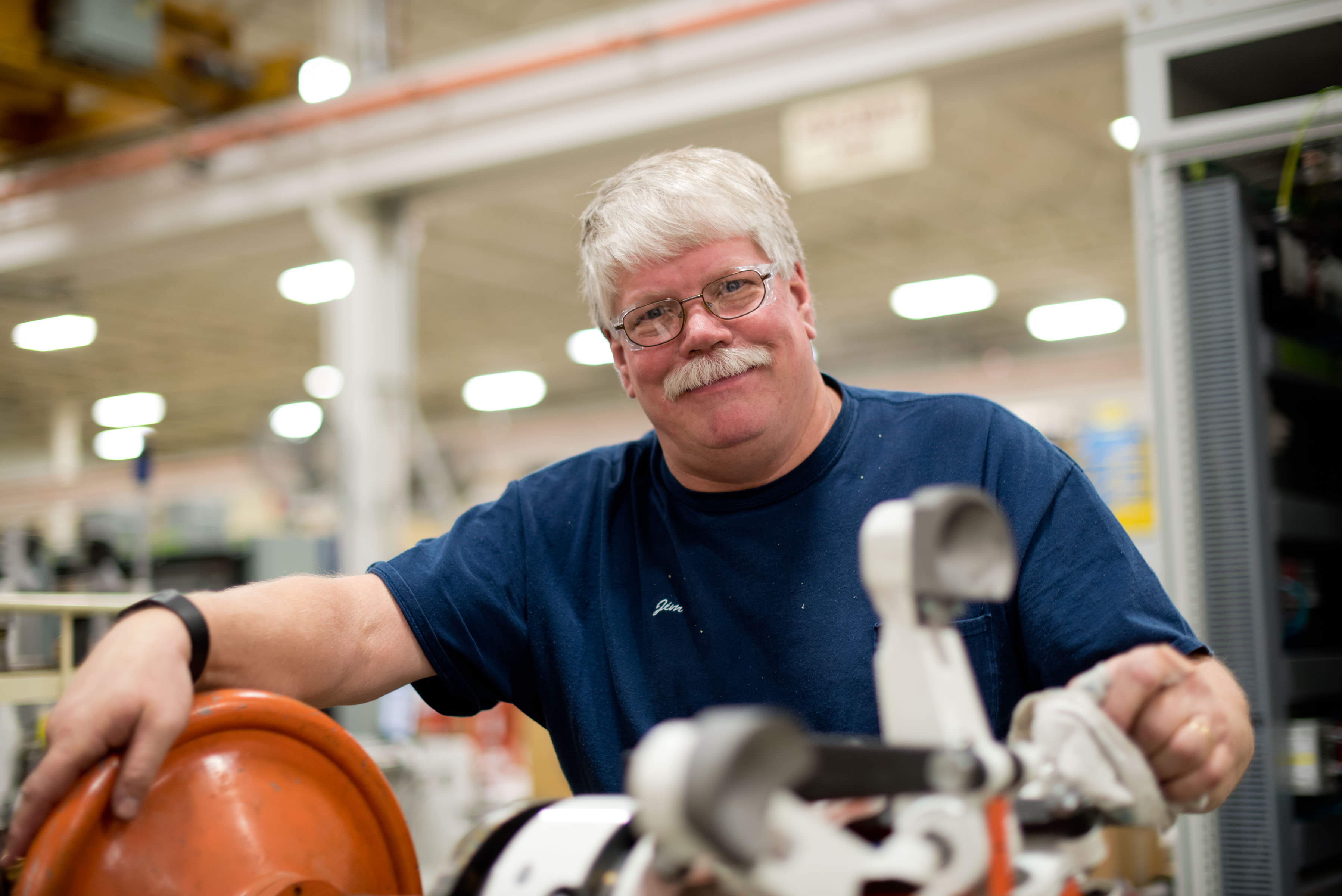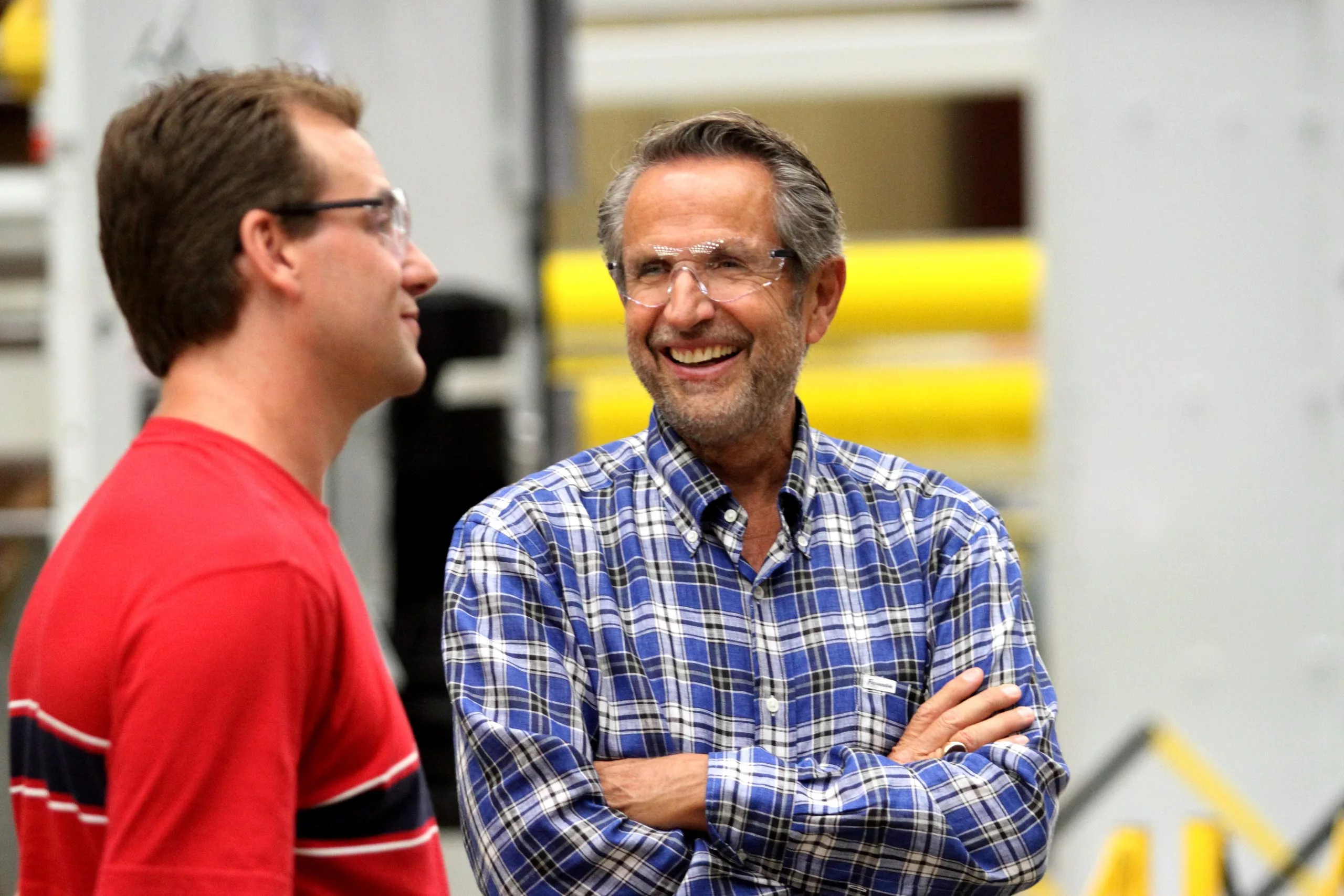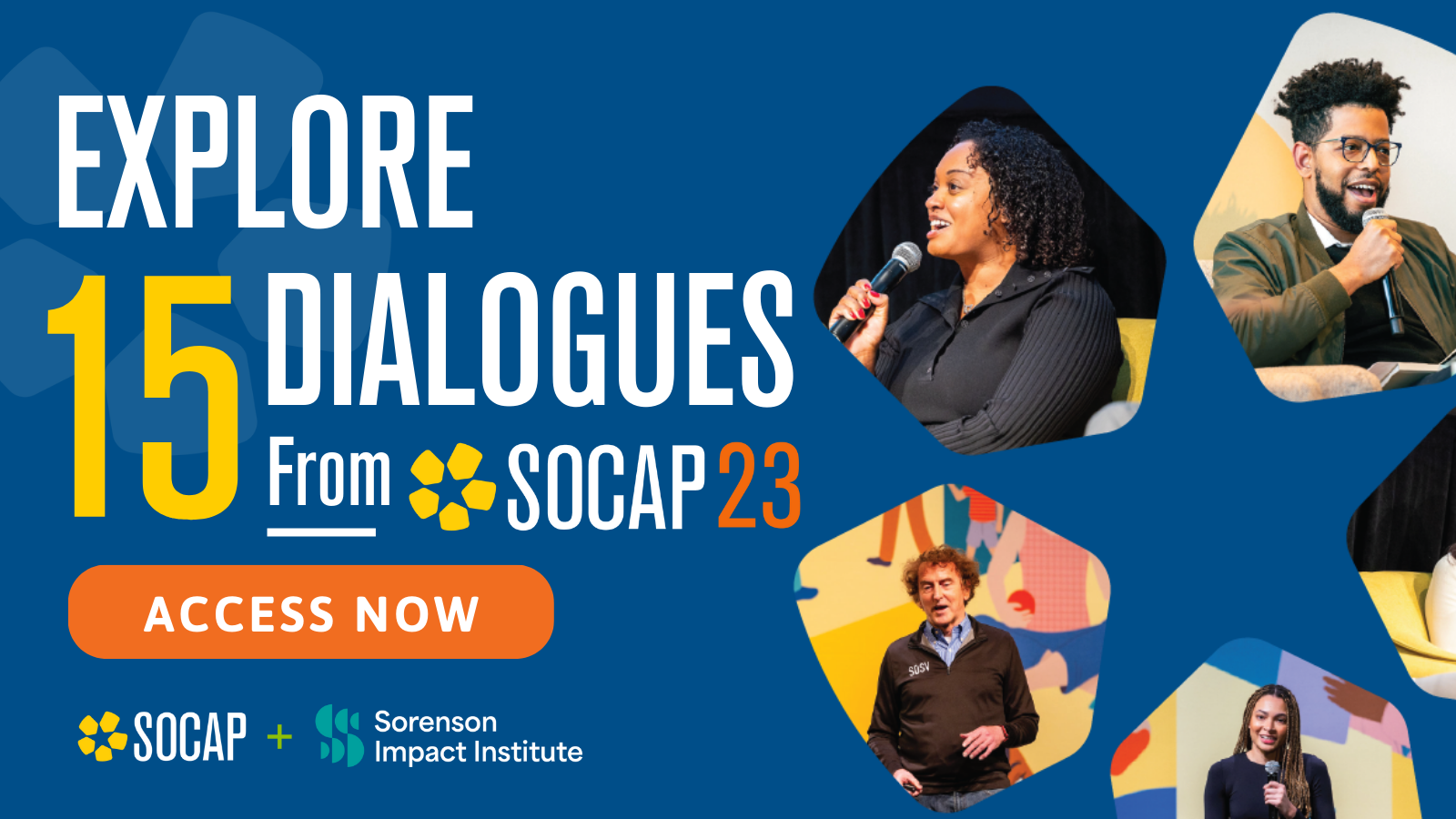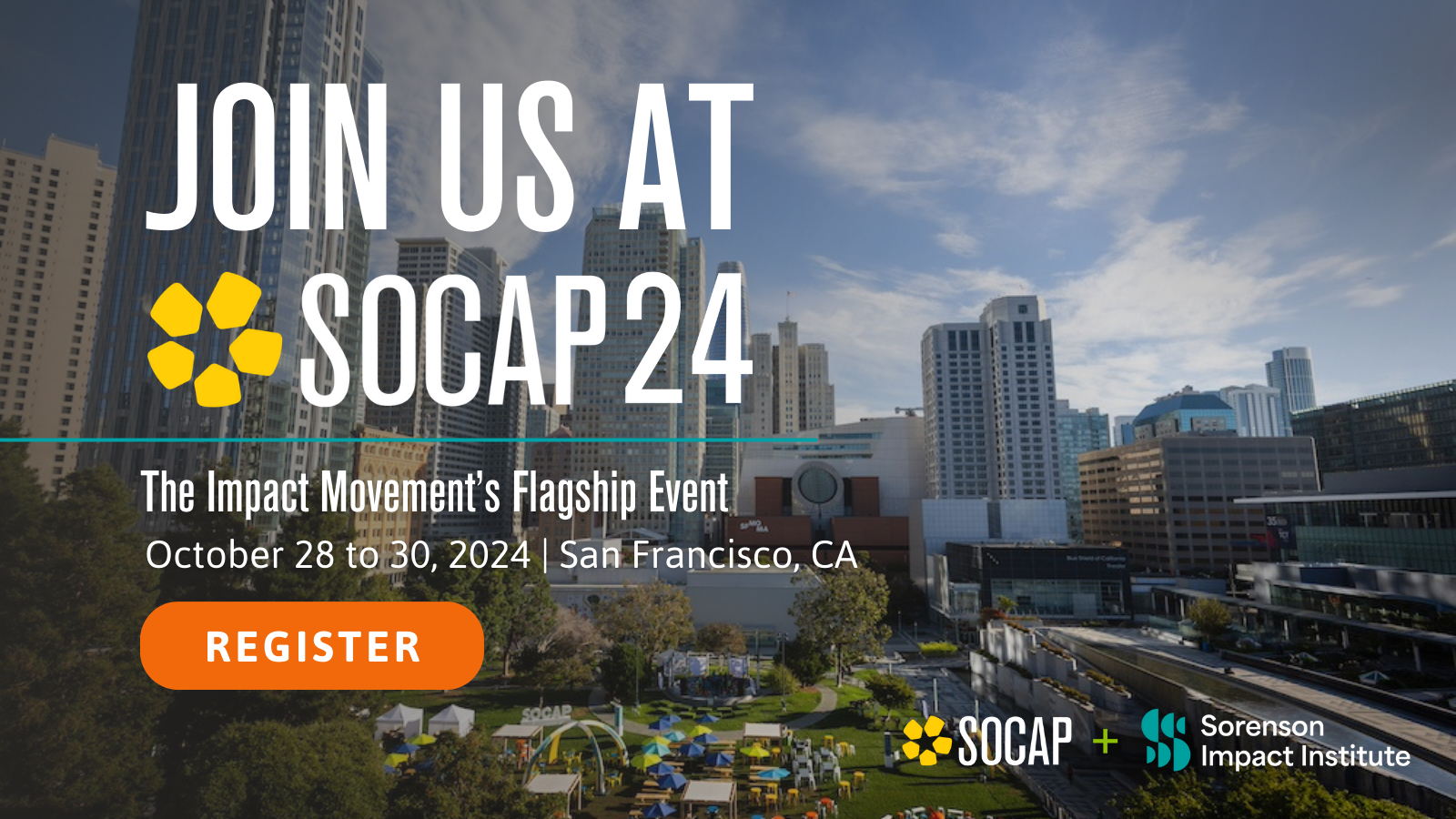If once is luck, twice is a coincidence, and three times is a trend, what should we call an idea that has worked more than a hundred times? That’s how often Barry-Wehmiller, a St. Louis-based global supplier of manufacturing technology and services, has deployed its culture-based turnarounds within companies it acquires — typically failing ones. The idea is simple: create a workplace culture that truly values and cares for employees, and the rest of the transformation will take care of itself.
When Barry-Wehmiller acquires a struggling company, chairman and CEO Bob Chapman almost never fires anybody. Instead, he comes in and says, “You are safe here. We’re going to train you on leadership and culture, and we’re going to be patient.” He’s not expecting returns in the first quarter or even the first year. Yet, reliably, if he gives his Truly Human Leadership principles three to five years to take hold, the acquired companies turn around to be more profitable than they had ever been before — with the same people.
Chapman’s strategy was inspired by two light-bulb moments he had in the early 2000s. First, he was sitting at a wedding, watching a crowd of people brim with emotion as a father walked the bride down the aisle, when it hit him that every single person who worked at his company was as precious as that bride. What would it mean to accept responsibility for those lives as part of his corporate leadership?
Then, a few years later, he flew in for an executive team meeting at a plant in Green Bay, Wisconsin. The night before, he had received an email suggesting that he might want to recognize a few plant employees for the good work they’d done on a continuous improvement project. He invited them to come present to the execs, and as he heard them talk about their achievements in improving quality, cutting lead time, and reducing inventory, he suddenly thought to ask one of them, “How did this affect your life?” A guy named Steve gave a surprising answer: “I’m talking to my wife more.” Chapman asked him to elaborate. “Since we’ve embraced the idea where I have a chance to make my role better and people ask me what I think, I go home feeling valued and better about myself,” Steve explained. “And when I go home feeling better about myself, I’m nicer to my wife. And when I’m nicer to her, she talks to me more.” It then hit Chapman that his company’s performance should primarily be measured by its impact on people’s lives.
Over the past 15 years or so, Chapman has deployed his insights on the power of caring for employees in every company Barry-Wehmiller has acquired, and well beyond. The company is featured in Simon Sinek’s 2014 book “Leaders Eat Last”; Chapman’s 2012 TEDx Talk has been viewed 150,000 times; and in 2015, Chapman published his own book, co-authored with Raj Sisodia, called “Everybody Matters.” Meanwhile, the Barry-Wehmiller Leadership Institute now offers training to other leaders, while Chapman speaks all around the globe.
We caught up with Chapman to talk about the lessons he’s learned about caring for employees and the legacy he’s hoping to leave behind.
Barry-Wehmiller At A Glance
• Location: Headquartered in St. Louis, MO; 100 locations total
• Founded: 1885
• Team Members: Nearly 12,000
• Traction: The company just acquired its 101st business, and since 1987 has experienced 18% compound revenue growth and 14% compound share price growth
• Impact: The company has provided leadership training to more than 50% of employees plus 14,000 non-employees.
• Structure: Privately owned for-profit
• 2017 Revenue: $2.8 billion
• Mission Statement: “We measure success by the way we touch the lives of people.”
What’s your mission in life right now — your personal big, audacious goal?
Bob Chapman: I hope that in the time that I have left, as long as I have a voice that people will listen to, I can get people to embrace that what we need is a human revolution. We had an industrial revolution, and it created the brokenness we’re now feeling, because it was never founded on the principles of human dignity and human thriving. It was never about creating meaning and purpose. It was around economic wealth through mass production and industrializing the country. It began around economic greed.
My granddaughter graduated from Aspen High School a year ago. I watched 158 of these talented young men and women walk across the stage to get their diploma. The mothers and fathers and grandparents and brothers and sisters and neighbors were all applauding with joy, and I had tears in my eyes. Because I knew where we were sending these young men and women. We were sending them out into a brutal world where they were going to be degraded and used for somebody else’s gain. I know we could solve that tomorrow if we simply embraced the profound opportunity we have to shape people’s lives when we are given the privilege of leadership.
Life to me now is about making sure I take the message we have been blessed with — I’m astounded that some higher power gave us this message, because there is no way I thought of this — and share it in a world that desperately needs it. That message is: “Business could be the most powerful force for good in the world if it simply genuinely cared about the people it had the privilege to lead.” It’s not a job, it’s not a role, it’s a higher calling. It’s taken a very good life and made it exponentially more meaningful.
Tell us more of the story of how you came to be the bearer of this message.
BC: Our leadership model emanated from my wife Cynthia and I raising six kids. I was trying to fix this 100-year-old business with what I learned in business school and graduate school, which is management practices. At the same time, I was trying to be a good steward to six kids, and I had to learn to be a good parent.
Over the ’80s and ’90s, everything I learned in business school and what I saw out in the workforce was what I call “management.” I took management classes, got a management degree, and got a job in management, so what did I try and do? I tried to manage the people.
I have come to define the word management as “the manipulation of others for your success.” Remember, we define success as money, power, and position, and you get them by serving yourself. You get a good degree, you get a good job, you make a good income, you get the attributes of success.
I thought that with my education and my experience, I was smarter. And I felt good when people came to ask me what to do and I told them. But when we’re raising kids, we’re taught just the opposite. Kids need to grow and experience and make their own decisions as they’re able to, which shapes their ability to be an adult. What I learned about being a good parent, I discovered, was about leadership.
So by the late ’90s I realized that everything I had learned about parenting was leadership. And everything I had learned in business school was wrong, because it was about manipulation of others for my success.
These are very simple concepts. They’re just hard to do. But this work touches people’s hearts. People get very emotional when they feel cared for. Remember, 88 percent of the people in this country feel they work for an organization that does not care about them. And three out of four people in this country are disengaged in what they’re doing.
We know for a fact now that the way people are treated at work, what they’re subjected to for 40 hours a week, has a material impact on the way they go home and treat their family. When we teach people how to be good leaders and care for their people, they don’t tell us about how they ran a better manufacturing operation, they tell us how it’s improved their marriage and the relationship with their children. Because leadership occurs in our homes, it occurs in our communities, and it occurs in our companies. Leaders are everywhere.
We who run organizations could profoundly change the world tomorrow without raising taxes, without changing laws, if we just simply cared about the people we have the privilege of leading, and we had the courage to demonstrate our care through the initiatives we take.
What’s been your biggest failure along the way?
BC: Probably my biggest failure is to not learn this when I was much younger. I’m 72. This began about fifteen years ago. So more than half of my career was very traditional.
Now I’m racing the clock to make sure that this gets institutionalized and embraced. About ten years ago, a young man who had just joined us asked me, “What is your greatest fear?” I said, “That we create this exceptional, caring organization, and it would be too dependent upon me; if something were to happen to me, it would go away.”
The next morning, I got up and said, “Okay, I’ve identified a fear I didn’t even know I had. What are we going to do about it?” What do religions do to exist over centuries? They articulate their beliefs, they tell stories that affirm their beliefs, and they create disciples who share those stories so that it lives on beyond their time. So I said, “How are we going to create disciples? We can’t send people back to universities to learn to care, because our universities teach people to use others for their personal success. We have to create our own university.” Which we did.
We began internally, to help our own frontline leaders learn how to care for the people they had the privilege of leading. But then we started getting more and more and more interest, and finally we decided to create classes — a two-day deep dive to feel and touch our culture.
Then, because we had such an overwhelming response, we decided to create a Barry-Wehmiller Leadership Institute to find people who believe what we believe, who want to join us in this walk across the bridge from management to leadership.
A few years later, at a conference in Colorado Springs, I sat there and looked at this team of ours teaching CEOs of major hospitals and I thought, “Oh, my God. It’s not going to die with me because they’ve turned it into teachable, reputable content that makes impact.” I’m not interested in people being enamored of Barry-Wehmiller. I’m interested in lighting up their lights so that they can shine brightly.
We are thrilled that we have a very high level of interest with some major corporations to embrace these principles. We know it’s making an impact, but we’re early in the journey. Some of these corporations have 70,000 people, so it’s not a week-long or a month-long or a year-long process. It will take years to transform, but they’re on the journey and they’ve joined us.

Barry-Wehmiller’s businesses serve a diverse set of industries: packaging, paper converting, sheeting, corrugating, engineering, and IT consulting.
As you talk to other executives about practicing Truly Human Leadership and the type of company cultures Barry-Wehmiller creates, what’s the most compelling way of convincing them to try it?
BC: I don’t really try to convince them. We’ve decided that we’re looking for the early adopters. We’re looking for people who believe what we believe and want to join us in this journey of healing, of fulfillment, of meaning for the people whose lives are entrusted to us.
I guess probably the cutest story is that when I was speaking to 150 CEOs in Los Angeles, at the end of my speech I said, “Does anybody disagree with anything I just said?” Not a single hand went up. I said, “How many of you agree with what I just said?” Every hand in the room went up enthusiastically. I said, “Okay. Appreciate that. Now ask me a question.”
A gentleman stands up in the back of the room and says, “Mr. Chapman, I raised my hand. I agree with everything you said. But by God, I would think it would be hard to do that.”
I said to this guy who I’ve never met, “Are you married?” He said, “Yes, I am.” And I said, “I’m curious, do you find being married easy?” He puts his head down and says, “No, it’s really hard to be married.” And I said, “You’re right. Name any human relationship that’s easy. Is it easy to fulfill your vows daily that you said with your wife before God and your friends and family? No. Is it easy to raise kids? No. Is it easy to care for our 12,000 people? No. What is the alternative?”
The top partners at McKinsey [& Company], at Ernst & Young , at Harvard, Case Western , London School of Economics, Stanford, Kellogg — nobody debates what you and I are talking about. It’s like debating motherhood and apple pie. Nobody says, “Now Bob, you don’t understand something.” Everybody just says, “Wow. Wow!”
We’ve been doing this for ten years, and not one single person has ever said, “This just doesn’t make sense.” Because what’s to argue with, caring for people? I always tell people I don’t need to justify caring. I think you have to justify not caring.
But the problem is our traditional education system doesn’t give people the tools to care, and it doesn’t give them the courage to go out into a world that is focused on money, power, and position and bring caring into that equation. It is such a far journey, and one that takes courage. It’s hard for people to break that pattern. It takes real courage to believe that you’re not going to spend more money, be a softer business. It’s really hard for people to join us on this journey even though we are finding people rapidly who do want to do this.
What’s the most frustrating thing people misunderstand about what you do?
BC: We’re not trying to be nice. We’re trying to care.
Tell me more about the difference between being nice and caring.
BC: Nice is if somebody’s team member has a baby, you’d send a note. Or you know everybody by their first name. That’s being nice, and that means a lot to people, but that’s not our style.
Our style is to empower those frontline leaders to look at the responsibility they have for the men and women in their care and embrace what we call our leadership checklist , things you need to do every day in service of the men and women in your care. It’s a discipline. We teach our leaders how to apply this in communication, in listening, in trying to organize work to eliminate frustration.
How does a company know if they’re ready for your ideas?
BC: I remember a guy saying to me one time, “I’m not sure my people are ready for this.” I said, “Oh, my God. Your people are ready for it tomorrow. You’re not ready for it.”
You can have some of these initial classes and see how you react. You can tiptoe into the wilderness without going all the way in and see if it’s really a place you want to go or not. Though once you begin the journey, I don’t know how you go back, because once you feed them caring, I don’t know how you take it away.
What do you do about the people within a company who don’t want to get on board with a new way of doing things?
BC: That’s the most common question I get. The first time somebody asked me that, I said, “I just gave a talk about goodness and you want to know about the badness.”
Now remember, I’m an eternal optimist. When I was a young man, people used to say, “Bob’s the kind of guy who could walk into a room with piles of shit and say, ‘There must be a pony in here someplace!’” I walk with my feet on the ground and my head in the clouds. So what we do is practice courageous patience. How do you know that the problem is an issue with the person you’re dealing with? Is it the fact that the leader has not effectively connected with that person?
We understand that every single person’s journey is different. How they’re treated as a child, their predisposition of personality, the way they’ve been treated by leaders in other organizations, their perception of life … it’s a complex formula. We are not here to judge. We are here to invite them into our journey.
Here’s an example. We had a gentleman who worked up in Northern Wisconsin who I think was a Navy Seal. Muscular, tough, worked in the back of our plant. Basically, you just wanted to stay away from this guy. When began, he was very much against it because it was just another corporate program to him. But through our practice of courageous patience, he is now one of our biggest advocates. He’s a professor in our university. He had no interest in change and was perfectly comfortable, and today he’s one of the most positive forces in our company. We have courageous patience as long as a person is not hurting other people.
Correct me if I’m wrong, but I don’t think any of the Barry-Wehmiller companies have employee ownership or profit-sharing programs. Have you thought about that? Why is that not a part of how you demonstrate caring?
BC: For a couple of our large plants, we have been trying to move to a compensation program that engages team members in creating value and participating in the value they create. It’s complicated to do that. We are working towards it. I would say probably half of our people are in some kind of gain-share program. If they’re not, they’re getting fair wages. We have very low turnover. Walk through our plants and people are extremely happy. Salary does not create happiness.
We have this attitude in our political system that if we create tax cuts and stimulate business and create jobs, then everything is going to be okay because we got jobs. We’ve got low unemployment, moderate inflation, everything’s fine. But Americans have never been more frustrated than they are right now. They’ve got jobs and they’re taking vacations, they’re driving decent cars, they’re buying things at the store. This should be the happiest time in the world for our country, and yet the misery index is at a record high. Why? Because of the way people are treated for 40 hours a week in their jobs.
From our standpoint, the key is not to create jobs that pay x amount of money. It’s only when everything else is crappy that that becomes the common denominator. “What are you making and how much more can I get?”
Gallup has found that the number one determiner of happiness in the world is “a good job working with people you enjoy.” It doesn’t say “the highest-paid job.” As a matter of fact, Gallup was surprised at how people said that after a certain amount, doesn’t have any effect on happiness.
We have found that the way you treat people is more important than exactly what their salary is. We’re going to pay people fairly and treat them superbly. That is the key to happiness. And you know what? It works.
It’s unbelievable how much our culture attracts talent into our company now. We were interviewing a senior guy for one of our operations in the North Minnesota area. He was being considered, so he went and listened to my TED Talk, and he had to pull the car over because he got so emotional listening. He realized how miserable he was and how much he wanted to be part of an organization where he felt valued.
But we have this theory that it’s all about pay. Better pay, better jobs, and everybody will be happy. It’s really about giving people the opportunity to be valued and to work with other people who they enjoy. Compensation is still important, but it’s not what creates happiness.
What would you say Barry-Wehmiller’s growth edges are right now? What are you still trying to figure out and fine-tune around this model?
BC: We tend to buy struggling companies and make them better. Since 1997, I think Berkshire Hathaway Inc. stocks have gone up a compound growth rate of 7 or 9 percent, and ours has been 14 percent. But even though our share price is strong, if you look at our EBITDA percentage or operating profit percentage, you would say, “I’d get fired if I had those kinds of margins.”
Our operating margins are below industry norms because of the nature of the deals we’ve done, not because we don’t have great people. Yet we have to validate our culture with performance at or above industry norms. So the biggest thing we’re focused on is how we can make sure that, as we strive to perform at or above industry norms to validate our culture, we never compromise what we stand for in terms of treating people with respect and dignity. Because sometimes people perceive challenges like that as, “Right now we’ve got to go lay off some people,” and that’s exactly the opposite . We never do anything that compromises our culture.
What’s giving you hope?
BC: Ours has been an evolutionary journey that’s picked up immense speed and credibility. How could I possibly be so blessed as to have the opportunity to leave the world so significantly different? When I hear voices like Simon Sinek and Raj Sisodia and the McKinsey researchers and the Harvard voices start to join us in this chorus of freedom, of human dignity and human thriving, it gives me hope.
Simon Sinek came to visit one of our companies, and at the end of the first day he said, “I’m no longer a nutty idealist. I am seeing what I dreamed of.” And then William Ury, the world peace negotiator who started Harvard’s Program on Negotiation, heard about it through Simon and came to visit us. At the end of his first day, he said, “What I see here is the answer to world peace.” Because a world in which people feel valued and care for each other is a world of peace. That gives me hope. 
The Barry-Wehmiller Leadership Checklist
I accept the awesome responsibility of leadership. The following describe my essential actions as a leader:
• I practice stewardship of the Guiding Principles of Leadership through my time, conversations, and personal development.
• I advocate safety and wellness through my actions and words.
• I reflect to lead my team in Achieving Principled Results on Purpose.
• I inspire passion, optimism, and purpose.
• My personal communication cultivates fulfilling relationships.
• I foster a team community in which we are committed to each other and to the pursuit of a common goal.
• I exercise responsible freedom, empowering each of us to achieve our potential.
• I proactively engage in the personal growth of individuals on my team.
• I facilitate meaningful group interactions.
• I set, coach to, and measure goals that define winning.
• I recognize and celebrate the greatness in others.
• I commit to daily continuous improvement.








